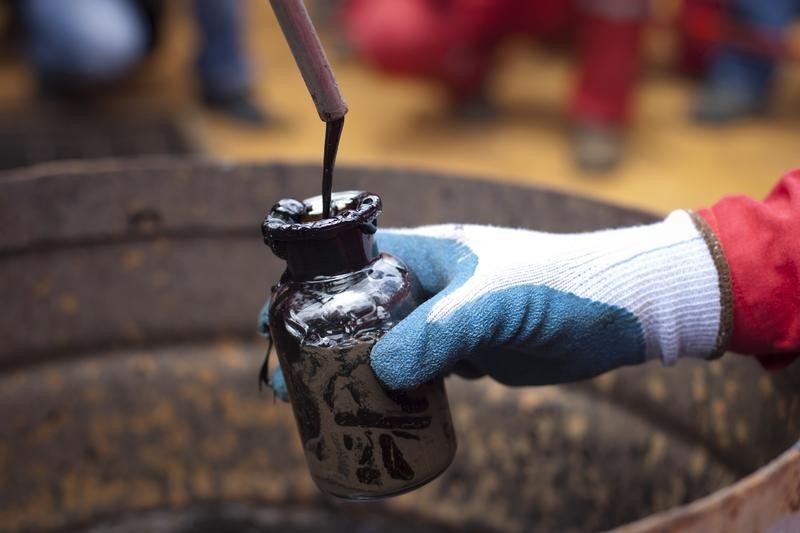* Relentless rise in U.S. oil production weighs on crude prices
* Shale drillers "fundamentally changed" oil industry - Goldman
* Concerns over China slowdown also drag on prices
* Saudi Arabia says will "do whatever it takes" to balance markets
* Production cut extension into 2018 seen as possible (Updates prices)
By Henning Gloystein
SINGAPORE, May 9 (Reuters) - Oil prices gave up earlier gains on Tuesday, as concerns over slowing demand and a relentless rise in U.S. crude output undermined the impact of hopes that OPEC-led production cuts could be extended.
Brent crude futures LCOc1 , the international benchmark for oil prices, were at $49.33 per barrel at 0651 GMT on Tuesday, down from a high of $49.60 earlier in the day and near their last close.
U.S. West Texas Intermediate (WTI) crude oil futures CLc1 were trading at $46.40 per barrel, down from an intra-day high of $46.66 and also little changed from their last settlement.
Traders said that oil markets were under pressure as persistent climbs in U.S. production, especially from shale oil drillers, and concerns over a slowdown in China undermine efforts led by the Organization of the Petroleum Exporting Countries (OPEC) to prop up prices.
U.S. crude production C-OUT-T-EIA has risen by over 10 percent since mid-2016 to 9.3 million bpd, close to the output of top producers Russia and Saudi Arabia.
"That's making it difficult to drive the stockpiles down to a level OPEC thinks will see prices rise sustainably," said Greg McKenna, chief market strategist at futures brokerage AxiTrader.
U.S. bank Goldman Sachs (NYSE:GS) said that U.S. shale drillers "fundamentally changed" the oil industry due to their ability to ramp up output much faster than conventional producers.
Bank of America Merrill Lynch (NYSE:BAC) said the low oil prices were also due to a slowdown in demand.
"Oil demand growth this year is underwhelming, in part explaining why crude oil prices and refining margins have sold off sharply recently," it said.
AxiTrader's McKenna said there were concerns about Chinese economic growth as imports and exports slowed.
"The economy could slow more sharply than ... expected," he said.
Top exporter and de facto OPEC leader Saudi Arabia said on Monday it would "do whatever it takes" to rebalance a market that has been dogged by oversupply for over two years, resulting in crude prices below $50 per barrel. cornerstone of the Saudi promise to rebalance the market would be to extend, potentially into 2018, a pledge led by OPEC and other producers including Russia to cut output by almost 1.8 million barrels per day (bpd) during the first half of the year.
